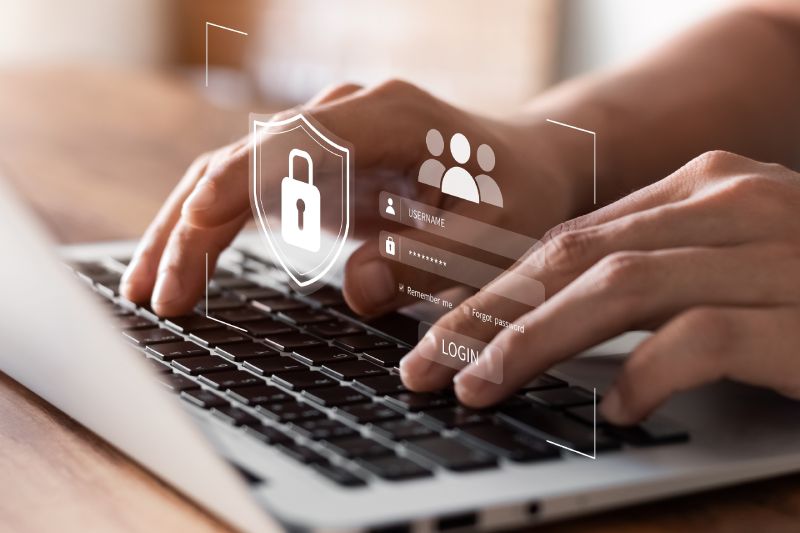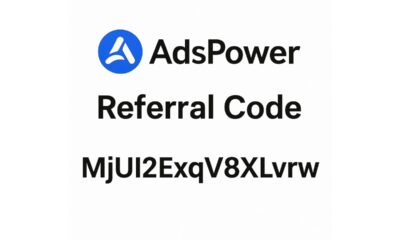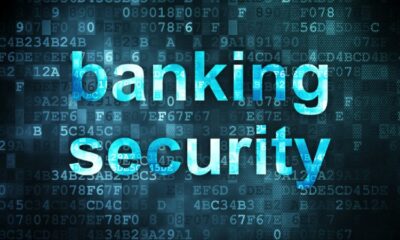Business
4 Suggestions For Safeguarding Your Online Funds

Almost every day, we transfer money online for a variety of purposes, including playing games on our phones, making monthly payments, and switching between bank accounts. Money management has been simplified and expedited by the digital age, however using online systems increases the chance of having your money stolen by hackers.
Examine the safety measures you should implement while transferring and spending money online to protect your money from loss.
Don’t Provide Your Personal Information
Above all, until you are certain that the person is trustworthy, you must keep your personal information confidential. In response to a surge in cybercrime cases, the government launched a significant campaign in 2024 to combat fraud. The campaign advised citizens to “Stop! Think Fraud” before responding to emails and texts asking personal information.
Cybercriminals are skilled at devising strategies to deceive you into disclosing personal information. Examples include posing as well-known businesses, posing as urgent demand scammers (such as those involving SMS parcel delivery), and enticing customers with exclusive deals.
Recall that respectable establishments will never request that you divulge your personal details online. It is advisable to meticulously examine the sender data of dubious emails and texts, as attempted hackers typically reveal the email address or mobile number.
Verify The Security Of The Websites
Make sure websites are secure before entering your name, address, and credit card information, whether you’re making a big purchase, purchasing a new outfit, or making a deposit to play online bingo on your phone.
A secure website can be identified by looking at the URL, which should start with “https,” where the “s” stands for secure. This indicates that all data transferred from your browser to their platform is encrypted and that the website is secured by a Secure Sockets Layer (SSL) certificate.
Make Sure Your Password Is Secure
Before transferring money using their platform, the majority of reliable websites will require you to register an account and provide a password. This aids in authenticating internet users and removing hacking attempts that are either human or machine-led.
Regardless of the website or the amount of money you’re spending, always use a secure password. Robust passwords consist of a blend of capital and lowercase characters, digits, and symbols, and must not be associated with any personal details like your name or birthdate.
Avoid Clicking On Unknown Links
Finally, be careful not to click on strange URLs without first verifying that the request is coming from a reputable source. Your hackers may be able to access your accounts and obtain valuable personal information if you enter information through these links.
Always take the time to confirm the sender’s information, and instead of opening the link in your browser, hover over it to read the URL. When in doubt, give someone a call to confirm.
-

 Travel4 weeks ago
Travel4 weeks agoBwindi’s Gorilla Tourism: Saving Wildlife, Empowering Communities
-

 Education4 weeks ago
Education4 weeks agoJoseph Curran: Using Legal Writing and Advocacy to Simplify Complex Issues for Clients
-

 Tech4 weeks ago
Tech4 weeks agoGoogle Offers New Travel-related Features To Search And Launches Its AI “Flight Deals” Tool Around The World
-

 Business4 weeks ago
Business4 weeks agoStop the Bleeding: How Unanswered Comments Increase Your CAC
-

 Cryptocurrency2 weeks ago
Cryptocurrency2 weeks agoRami Beracha Asks, Can Israel Become A Global Leader In Blockchain Innovation?
-

 Tech3 weeks ago
Tech3 weeks agoAdsPower Promo Code for 50% Off – Ultimate Guide to AdsPower Benefits (Referral Code Included)
-

 Education2 weeks ago
Education2 weeks agoForged in Fire: Nicholas Lawless Unveils Lawless Leadership – The Model Built for a World That Traditional Leadership Can’t Survive
-

 Business2 weeks ago
Business2 weeks agoOPO Group LTD Strengthens Its Global Footprint With Expanding Offices and a Modernized Trading Ecosystem


















